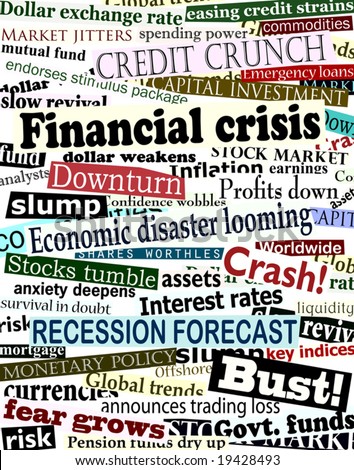The Problem
The fundamental question which economics is built upon, is how to deal with limited means in conjunction with unlimited wants. It takes on the starting point that we live in a world of scarcity, of of finite resources – but that we also live in a world where humans have unlimited wants and needs, and thus inevitably not all wants and needs will be satisfied.This is where the Pricing system within Economics comes from, where the price is determined through the interaction of supply and demand. Prices on products and services, are in the end an ‘elimination’ tool. Because we have only so many resources, and not everyone will be able to get them to satisfy their wants and needs – the pricing system works as a distribution system. If a loaf of bread is sold at $1 each – then this implies that everyone who has $1 and is willing to spend that one dollar on bread can do so. This also means that anyone who doesn’t have $1 dollar to spend on bread but wants and NEEDS bread to be able to survive = won’t be able to get bread.
So it seems that the distribution problem of ‘who gets what’ is solved – but this a more than ineffective solution, and is really unacceptable.
Firstly, the problem starts already in the formulation of ‘the economic problem’. The problem lies in not making a distinction between wants and needs. It’s one thing to say that wants are unlimited and another to say that needs are unlimited. Sure, we can all make up unlimited wants, like wanting a cruise ship, a place, a few villas and a unicorn – but needs are not unlimited and can be clearly defined, such as say food, security, clothing, housing, medical care, participation, leisure, education, etc.
The second problem arises when we look at our current distribution system within the way things are priced. Everything is price based, so even if things are scarce and finite – if you have the money, you can still get your hands on ‘scarce resources’ even though others can’t. This implies that some can exploit the amount of money they have available to use as many resources as they like, while less and less is available for others, and where others may not even have the financial means to acquire what is left. Our pricing system is then in fact, a system of blatant discrimination. We are no longer looking at how we can support ourselves living life on this Earth – but playing a game of ruthless and unfair competition causing some to live in abundance while others live on the brink of death.
The Solution
The solution is a simple one, we require to re-evaluate the ‘economic problem’ as we have accepted and allowed ourselves to define it. A distinction needs to be made between needs and wants, where needs come prior to wants at all times, as part of being a Basic Human Right.Instead of having a distribution system based on discrimination, we require a distribution system of inclusion, and this inclusion is that of Life – where the Real Capital that has actual Real Value is recognized as Life. This is how the Equal Money Capitalistic System will operate. It’s a biocentric system, and this is reflected within the pricing of Goods and Services. Pricing will reflect the value that has been added through individuals’ contribution as labour. Within this, each participant, each contributor – will receive an Equal Profit-Share of the sale of the product/service.
From Day 163: Equal Money Capitalism - Redefining Profit:
WHAT IS PROFIT-SHARE?
Currently profit is the money a company makes after they have covered their costs, including paying out wages. In an EMC - profit comprises of all the added value that is placed on resources - which is your labour. Therefore - within the price, the percentage share must be included of each one that was part of the creation of the product in such a way that each one ends up with an equal share of the company's profits, so - there will be no need for wages - as the profit becomes your wage.
EQUALIZING WAGES – COOPERATION AMONG CORPORATIONS
If a company at any time makes more money than they need to provide each one with their equal share of the profit as well as covering their costs - those monies will go into a fund that is responsible for assisting companies that are not making sufficient to cover their costs and provide each one with their fair share. That way a balancing effect takes place so that all companies are not only cooperatives in how they cooperate internally - but all cooperate with each other as well.
Equal Money Capitalism will ensure a Dignified Life for everyone, as everyone will be in a position to acquire resources to support themselves to Live their Life, where needs are taken care of while still allowing for wants to be explored.
The Reward
Within Equal Money Capitalism, one will be birthed into a world where one’s life is secure. Currently, the main point of focus that pre-occupies people’s lives is that of money, which turns Life to being a strife, becoming about survival. When you have a child in Equal Money Capitalism, you do not have to worry about your child’s future and how you’re going to fund it with while trying to make ends meet. Your life and your child’s – your entire family’s Life = is guaranteed.It is in essence a Life where Fear as being part of everyday Life is removed, and where one can truly live and explore – to really find out what it means to live here on Earth in an enjoyable, yet responsible way.









